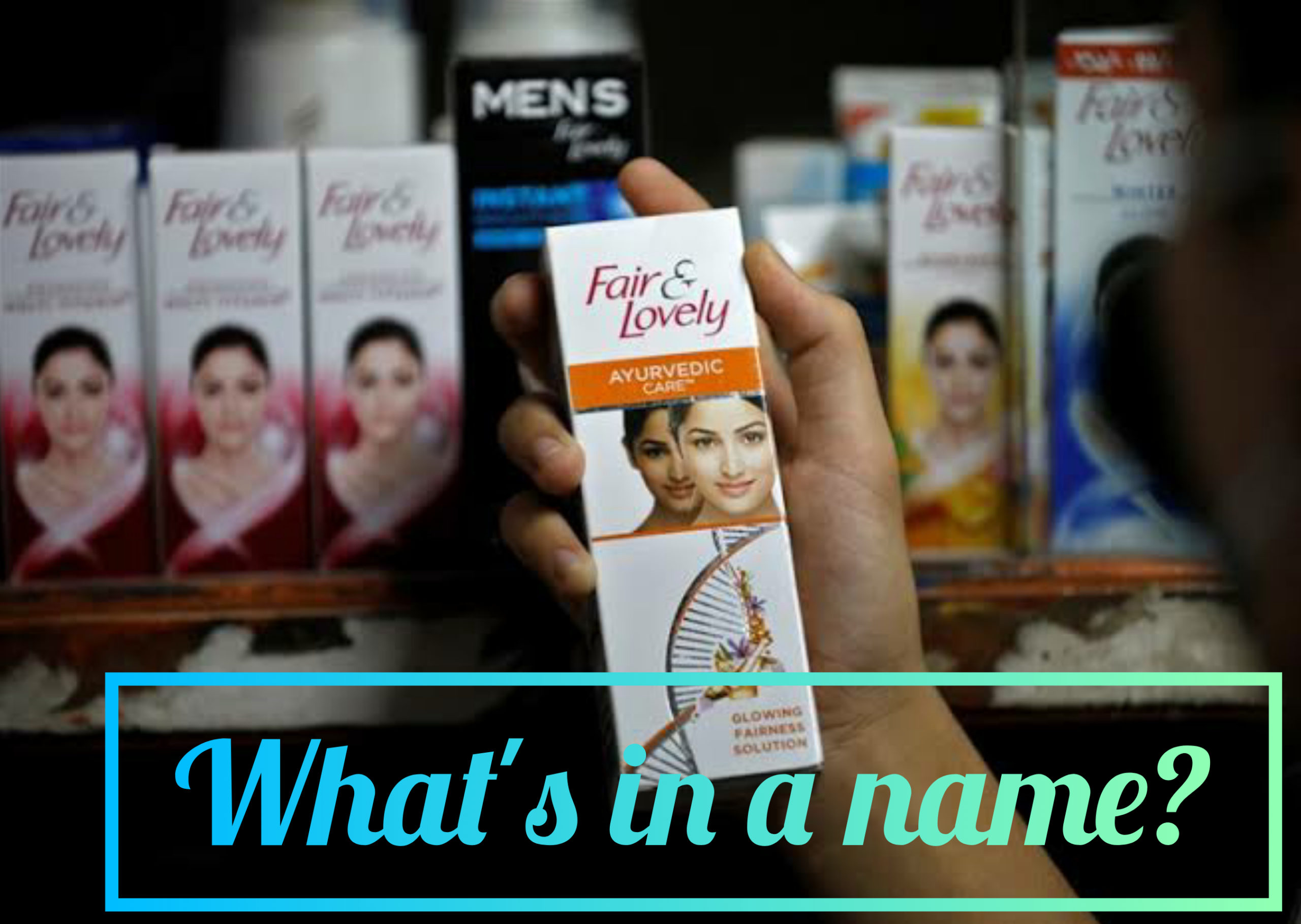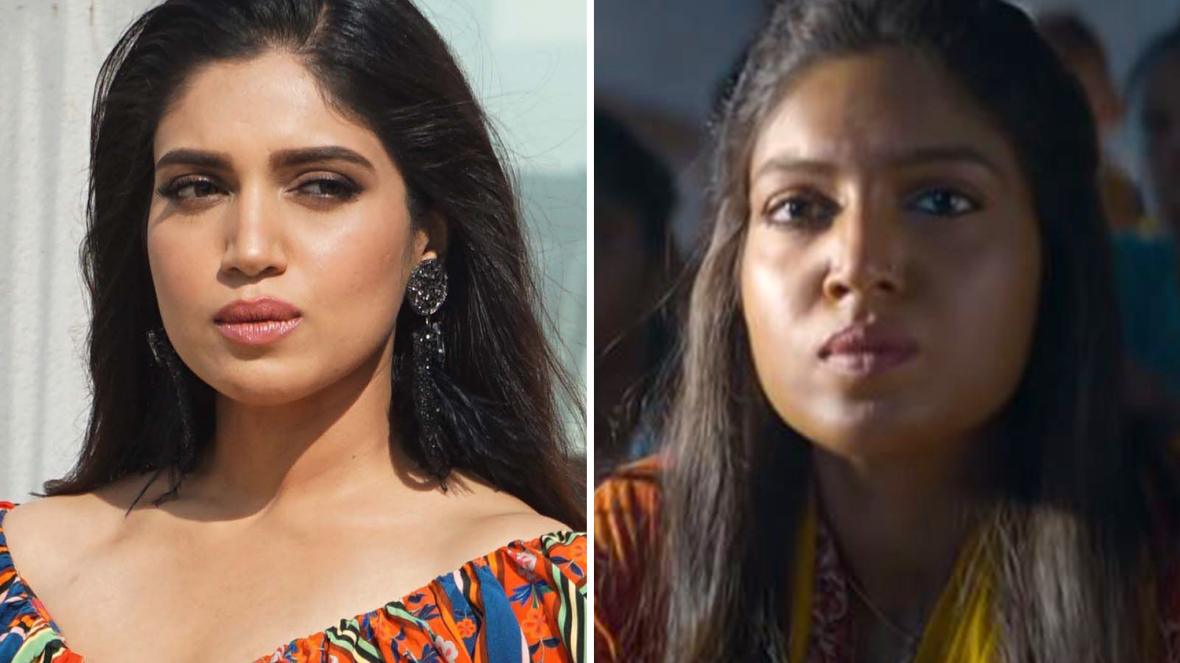“What’s in a name? That which call a cream by any other name would smell as racist.”
A different version of the quote from Romeo and Juliet, written by Shakespeare. Juliet compares Romeo to a rose, that if he were not named Romeo he would still be handsome and be Juliet’s love. Rebranding fairness cream doesn’t mean it will stop being a fairness cream. The nature of the object doesn’t change by giving it a different name.

You might have heard about the recent renaming of the skin lightening cream “fair and lovely” by Hindustan Unilever however it will still occupy 80% of the skin lightening market in India and would still be used by girls as young as 12 according to survey reports.
India’s skin whitening market is expected to achieve an annual market revenue of $720 million by 2023. Fair & Lovely, a fairness cream that was launched in 1975 and now holds more than 50 percent market share, has long marketed itself as the savior for unmarried women to find grooms — and for married women to keep them.
Hindustan Unilever, the multinational conglomerate that produces it, has not shied away from using blatant colorism to sell its products.
In a controversial 1990 ad Fair&Lovely ad featured a young Indian woman who is heartbroken when she hears her father say, “Kaash beta hota/ If only I had a son.” She runs to her bedroom crying, where she sees a television ad for Fair & Lovely. The advertisement cuts to the protagonist, now happy with her lighter skin, making more money, and taking her parents out to dinner. The father beams approvingly. A brazen cocktail of colorism and patriarchy, the ad was heavily criticized when it aired for shamelessly exploiting the aspirations of Indian women, and for pinning financial and romantic success on fair skin.
Recent Fair & Lovely ads do not contain this blatant misogyny, but instead drip with corporate-led feminism; they suggest fair skin as a tool for female success. You can become a pilot, a district collector, or a rich athlete by using their product. And in a bid to increase profits, they offer products to lighten other parts of Indian women. The company now sells armpit lightening cream — and even vagina lightening cream.
Following the George Floyd’s death and calls against racial inequality, Lóreal’s product “Garnier Skin Natural White Complete Multi Action Fairness Cream” become another in the row to be renamed due to its racist name but racism will however persist to motivate young people to lighten their skin because what’s in a name? We still need a skin lightening cream.
Remove George Floyd’s murder, coming to our country, racial discrimination is prevalent in India as well. Look at any Bollywood movie, and you’ll think that India is a country of white people or outright blackish skin that doesn’t even exist as seen with Hrithik Roshan in Super 30 and Bhumi Pednekar in Bala. Yes, black-skinned people are black-skinned, but they’re not supposed to be perceived as ugly.
Moreover, Bollywood films often feature songs that glorify fair skin and deride darker skin shades. For example, the song “white-white face dekhe dil-wa-beating-fast” talks about how the two lead actors’ hearts start beating fast upon seeing “white-white faces”. What nonsense!
An Indian bride is famous for being transformed into something she isn’t. What does the makeup artists actually do? They attempt to make a bride look more elegant, or they merely try to brighten the skin of the bride because that’s presumed to be beautiful. Now, people come with the reasoning that a black man or a woman has preconceived notions of not fulfilling the ideal standards of beauty.
The skin tone filter removed by Shaadi. Com a few weeks ago reverberates a different story. Yes, maybe they are insecure about their skin. But would you click on the black tone filter on the matrimonial website? Chances are very less. Buri nazar wale tera muh kala hai (the one with the evil eye has a black face) and we have the audacity to call out on their self-victimisation?
BJP Member of Parliament Tarun Vijay defended racism after the NOIDA attack in which African students were attacked by a vigilante mob on alleged selling of the drugs— “If we were racist, why would the entire South — you know the Tamils, you know Kerala, Karnataka, and Andhra — why do we live with them?” Why do they live with us?
Racial discrimination has permeated every aspect of Indian society. The societal norms and upbringing reflect the attraction towards white skin. Furthermore, the actions and ideologies of the north Indian to treat the south Indian as inferior, drug dealers, and significantly not a vital part of Indian citizen pave way for the discrimination.
How many of us actually talked about Jayaraj and Fenix? Only two weeks has passed since the incident took place. But in the en,d every south Indian issue becomes just a south Indian issue.
During the French Revolution, when Louis XVI was defeated and the monarchy was abolished with the formation of the National Assembly, the slave trade was rife with a triangular trade between America, Afric, and Europe. Human rights were highly discussed and debated. Slaves brought from different places in Africa were exploited. However, the assembly didn’t passed any resolution fearing the upheaval from traders and businessmen.
Selective outrage for personal incentives isn’t something new. Our political leaders and government will continue fabricating rights and disparities among what they consider to be helpful for them. The difference of belief, religion, class, race, etc, has always been the kernel of dividing and earning support for propagandas to fulfill. To garner support, they’ll show the banner of equal rights and to fume hatred, they’ll show forged disparities among communities.
Removing “fair” from fair and lovely won’t cease colourism. What we need is the structural change in the thinking of society. The root of the tree is infected and we are trying to remedy the fruits. The next time when someone asks how you support the black lives matter movement, instead of spreading news from a town of USA, stop with your Bihari jokes. The next time you point a finger on an Indian celebrity for endorsing beauty products, point three fingers on yourself for helping them to reach the summit from where what they endorse actually matters. Why don’t we have black-skinned celebrities? Why do we endorse beauty products?
Whether it is a film song “gorey gorey gaalo pe hai kala kala til” for every wedding dance or the “Buri Nazar wale tera muh kala” phrase written at the back of every truck and autorickshaws or an advertisement for a face wash “kya aapka gorapan kahi kho gaya hai” even a wicked spirit in India has been fastened with the colour black. The Hindi version of the evil spirit has been assigned the name “Kala saya”, a pregnant lady needs to eat “banana taaki baccha Gora paida ho” (so the child is born fair).
What’s in a name? A black-skinned person called by another name would still be ugly for YOU because everything depends on colour for you.
[zombify_post]





